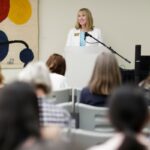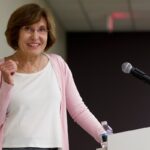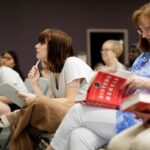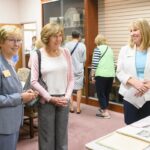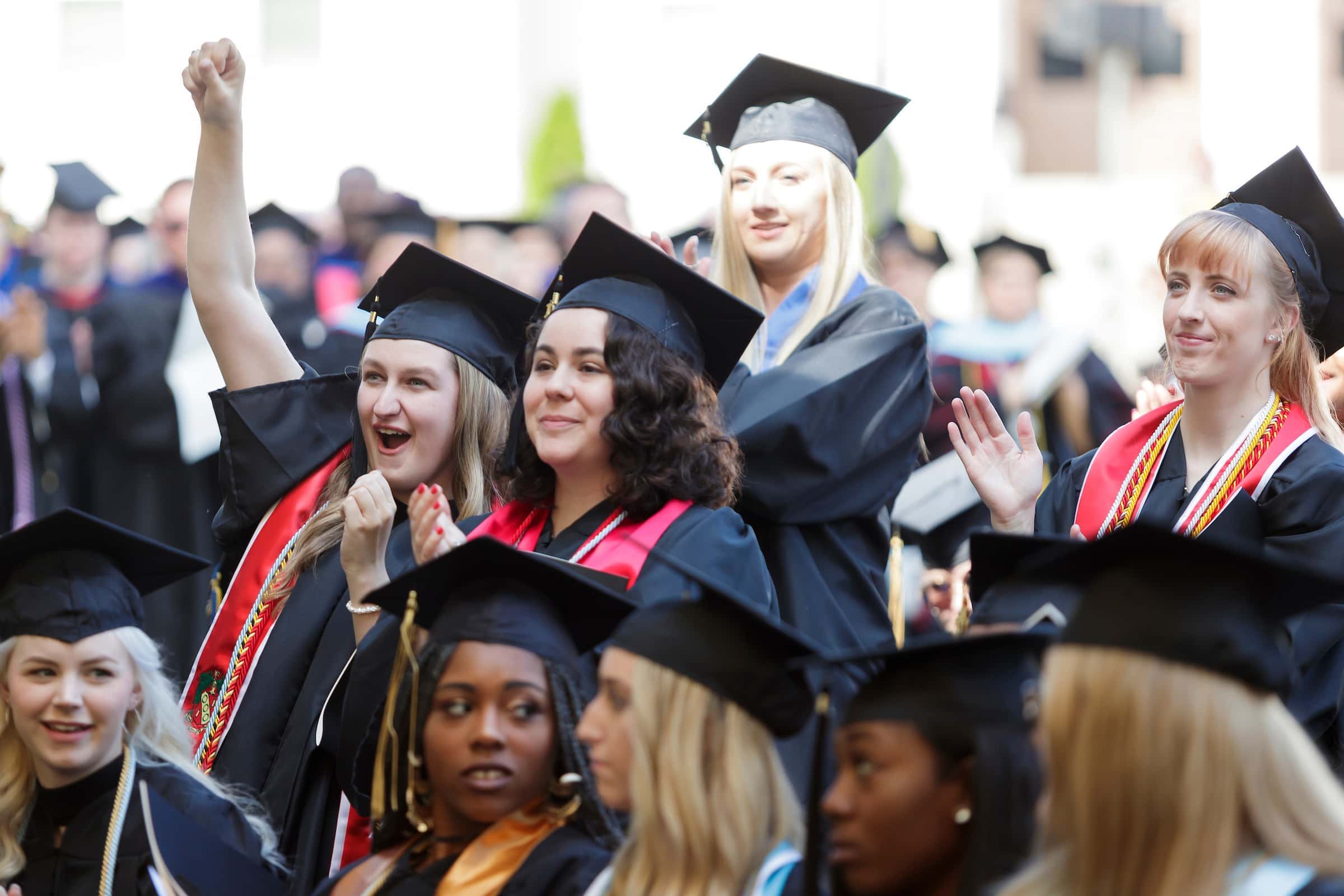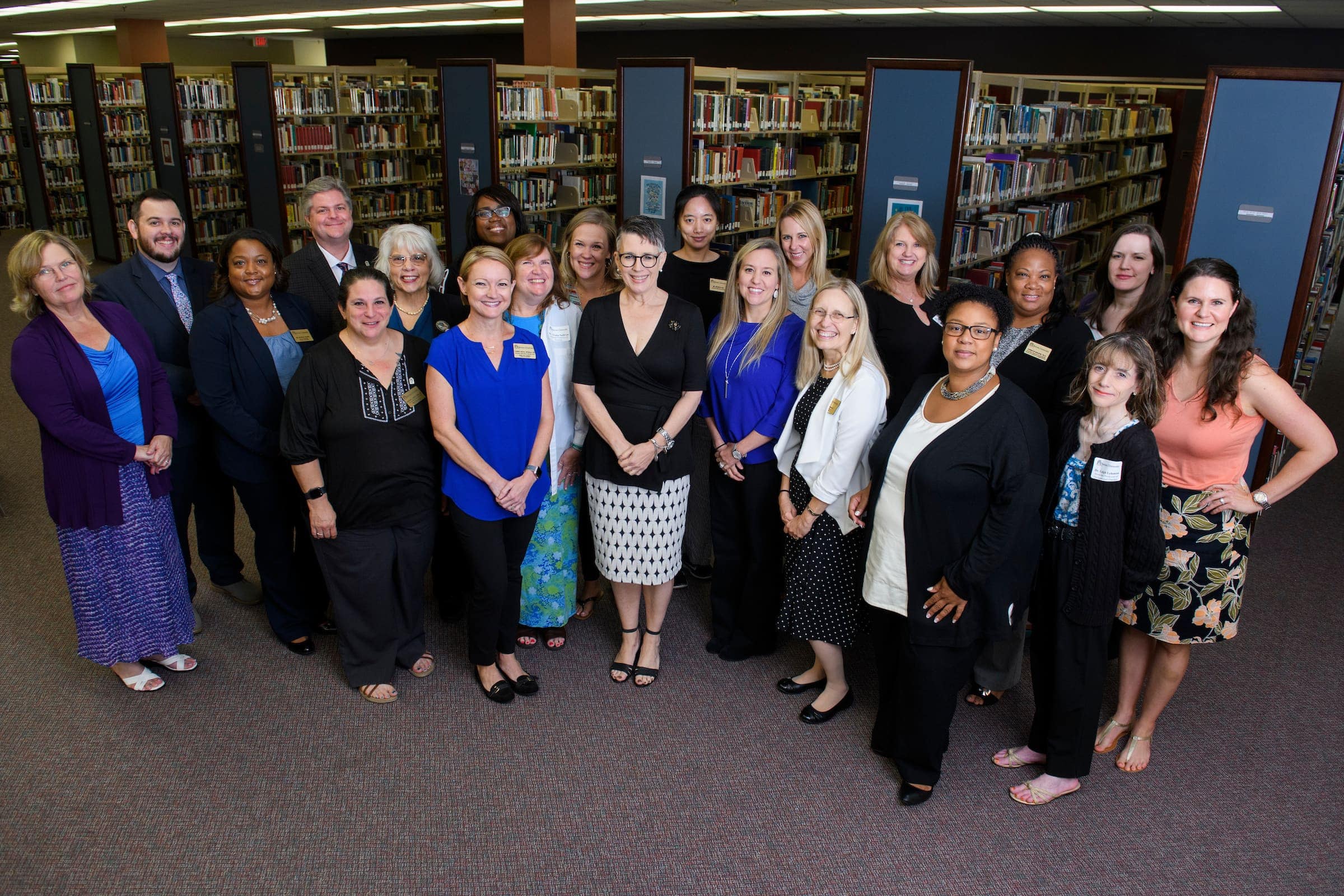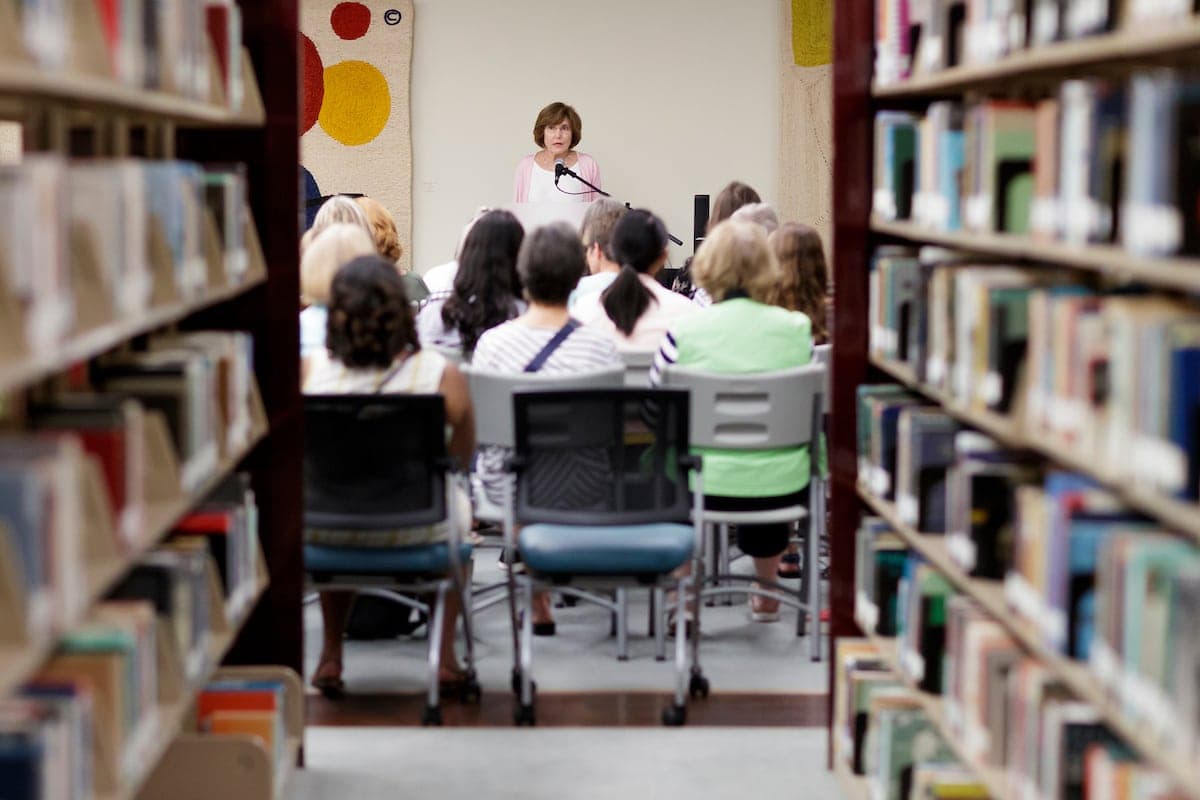
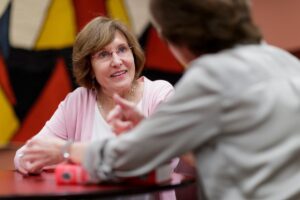
At the close of the 20th century, decades before the Civil Rights Movement or the Voting Rights Act, three sisters attended what was then known as Brenau College. Each of them would face their family heritage as Georgia slave-owning, white supremacists differently, becoming unique pieces of social, sexual and cultural history.
The story of Grace, Katharine and Elizabeth Lumpkin, three of Brenau University’s most famous — and infamous — alumnae, is told in author Jacquelyn Dowd Hall’s new book Sisters and Rebels: A Struggle for the Soul of America. Hall visited Brenau on Wednesday, Sept. 4, for a book reading, reception and archival exhibit.
“This is the story of the Lumpkin sisters, three women who attended Brenau a little over 100 years ago,” said Debra Dobkins, dean of The Women’s College, as she introduced Hall. “If you don’t know about them, get ready, because they were truly rebels and they did some extraordinary things.”
While Elizabeth was a popular orator in Confederate veterans movements who pushed the boundaries of her gender at the time, she did not stray far from her political upbringing. Contrarily, Grace and Katharine were particular rebels, becoming female civil rights and political activists. Katharine remains best known for her early-life autobiography The Making of a Southerner, which Hall discovered in the early 1970s.
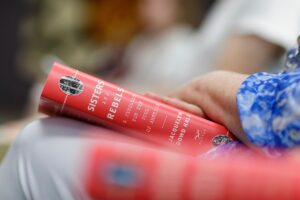 “I was working for a civil rights organization and trying to write a dissertation in what was then the brand-new field of women’s history,” Hall said. “It was in the course of writing that dissertation that I came upon Katharine’s book. The deep South, slave-owning, ancestor-worshipping upbringing she writes about could not have been more different from my own childhood in Oklahoma.”
“I was working for a civil rights organization and trying to write a dissertation in what was then the brand-new field of women’s history,” Hall said. “It was in the course of writing that dissertation that I came upon Katharine’s book. The deep South, slave-owning, ancestor-worshipping upbringing she writes about could not have been more different from my own childhood in Oklahoma.”
Hall was, regardless, drawn to the book and the way Katharine “recounts her conscription in Southern white ladyhood, and how she reinvented herself as an activist intellectual” in the ‘20s and ‘30s. Years later, Hall would meet both Grace and Katharine, befriending the latter and interviewing her many times during her research.
“They, like the rest of us, did not get to choose the family and the place they were born into or the beliefs their parents instilled in them,” Hall said. “But they did get to choose how they were going to react to that legacy. This book is about the choices they made and how the fraught ties of sisterhood were tested and frayed as each one grappled with that legacy in a different way.”
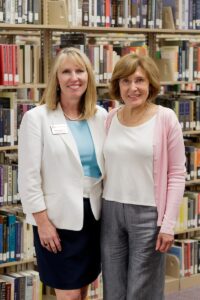
Grace’s story of young adulthood was not unlike her sister Katharine’s, as she authored the 1933 Maxim Gorky Prize-winning To Make My Bread and was a progressive female member of the Community Party in New York City and civil rights activist in her mid-twenties. In later years, however, she would recant what she called her youthful “political wrongs.”
Hall said her intention for the book was to tell the stories of these three women, to particularly delve into the later years of their lives when the women stopped documenting their own parts of history, while illuminating larger historical movements with which they were involved.
“My overarching goals echo the goals that Katharine and Grace, the two younger sisters, pursued,” she said. “Like them, I want to join in an ongoing, passionate discussion about how white Americans can face up to a legacy of slavery and segregation. That is, to our country’s original sin.”
Director of Library Services Linda Kern hurried to gather extra chairs to accommodate the large crowd assembled to hear Hall speak Wednesday at the Brenau Trustee Library. It was not Hall’s first trip to the university, as she visited during her research. She thanked several people for their help with the process, including Collection Development Librarian Benjamin Barton; retired, longtime Director of Campus Traditions Debbie Thompson; and retired Director of Communications & Publications David Morrison.
A reception followed the reading along with opportunities for book purchases and signings and a display of items from the period in the university archives.
Dobkins thanked the unexpectedly large crowd of faculty, staff, students and alumnae for finding time in their busy schedules at the start of the academic year to come listen to Hall speak.
“I really appreciate all of you coming out,” Dobkins said. “I think this is an hour we will long remember.”
